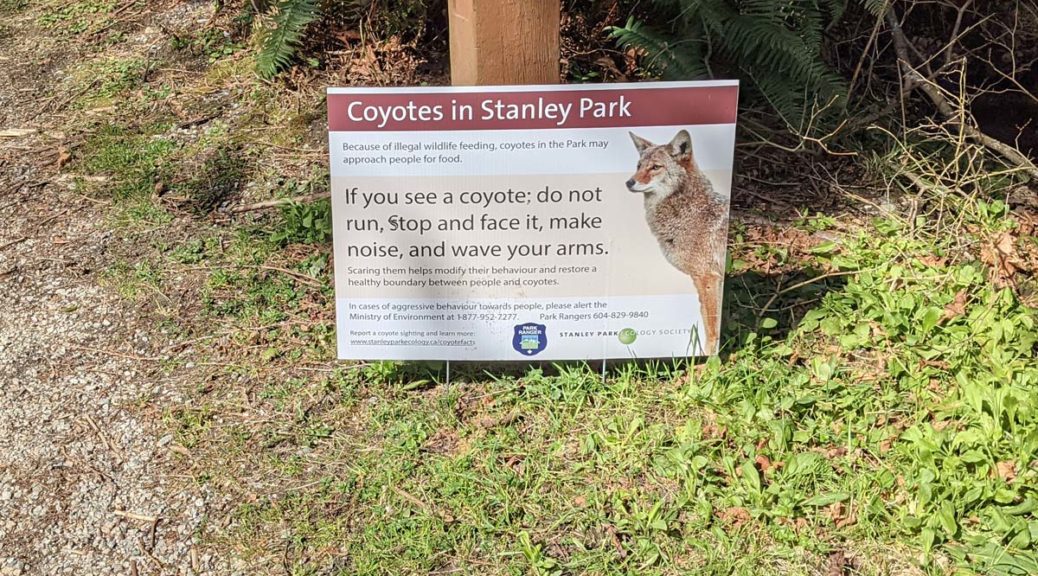At 405 hectares in size, Stanley Park is larger than most of Metro Vancouver’s recreational greenspace, but some of the woodland’s four-legged residents causing trouble for the park’s visitors.
Coyotes are not new to Stanley Park, but in the last seven months, 31 coyote attacks were registered in the park according to CTV news. Sightings of the creatures were reported on numerous trails, the parking lot by the Vancouver Aquarium, up at Prospect Point and along the seawall. Signage (pictured above) visibly posted throughout the park and on trails to ensure pedestrians are aware of the coyotes.
The B.C. Conservation Officer Service has already destroyed six coyotes since January of this year; two in that month and another four this month. The latter were culled in response to a news report of a two-year old child being bitten by one in the park on Monday. The B.C.. Conservation Officer Service has asked the public to refrain from walking on the trails in the park, further warning “to use at one’s own risk”.
Coyotes appear throughout Metro Vancouver, with many of them residing in the forests of Delta, Surrey, Richmond, Burnaby, and Coquitlam. They’ll wander city streets in the evening and early morning when there’s less activity to search for food. Though they are timid, coyotes will not hesitate to prey on smaller animals including squirrels, cats and dogs.
It’s suspected that human interaction through feeding wildlife is a contributing factor in causing the coyotes to lose their fear of humans. Once comfortable with the presence of people, coyotes will take more risks as they look for food and become aggressive if they cannot find something to eat. While the visuals of a human approaching the coyote to give it food by hand is unconfirmed, they are instead rummaging through leftovers in garbage cans, grabbing abandoned packaging littered on the ground or even sneaking morsels from homeless encampments hidden within the trees. Safely store or dispose of garbage and food items in appropriate receptacles to minimize a coyote enjoying unwanted leftovers and becoming habituated to human food. The Stanley Park Ecology Society maintains online resources on how we can exist with coyotes in our use of the region.
If approached by a coyote make yourself as big as possible and be loud, shout and scream at the animal; do not advance toward it. Keep any pets on leashes when in natural areas and bring them indoors at night. Should you encounter an aggressive coyote, immediately call the B.C. Conservation Officer Service Report All Poachers and Polluters (RAPP) hotline by dialing 1-877-952-7277 or #7277 from mobile devices on the TELUS Mobility Network.
Sources: CBC, CTV News, Stanley Park Ecology Society
Did you find a typographical or factual error in this article? Please let us know!
